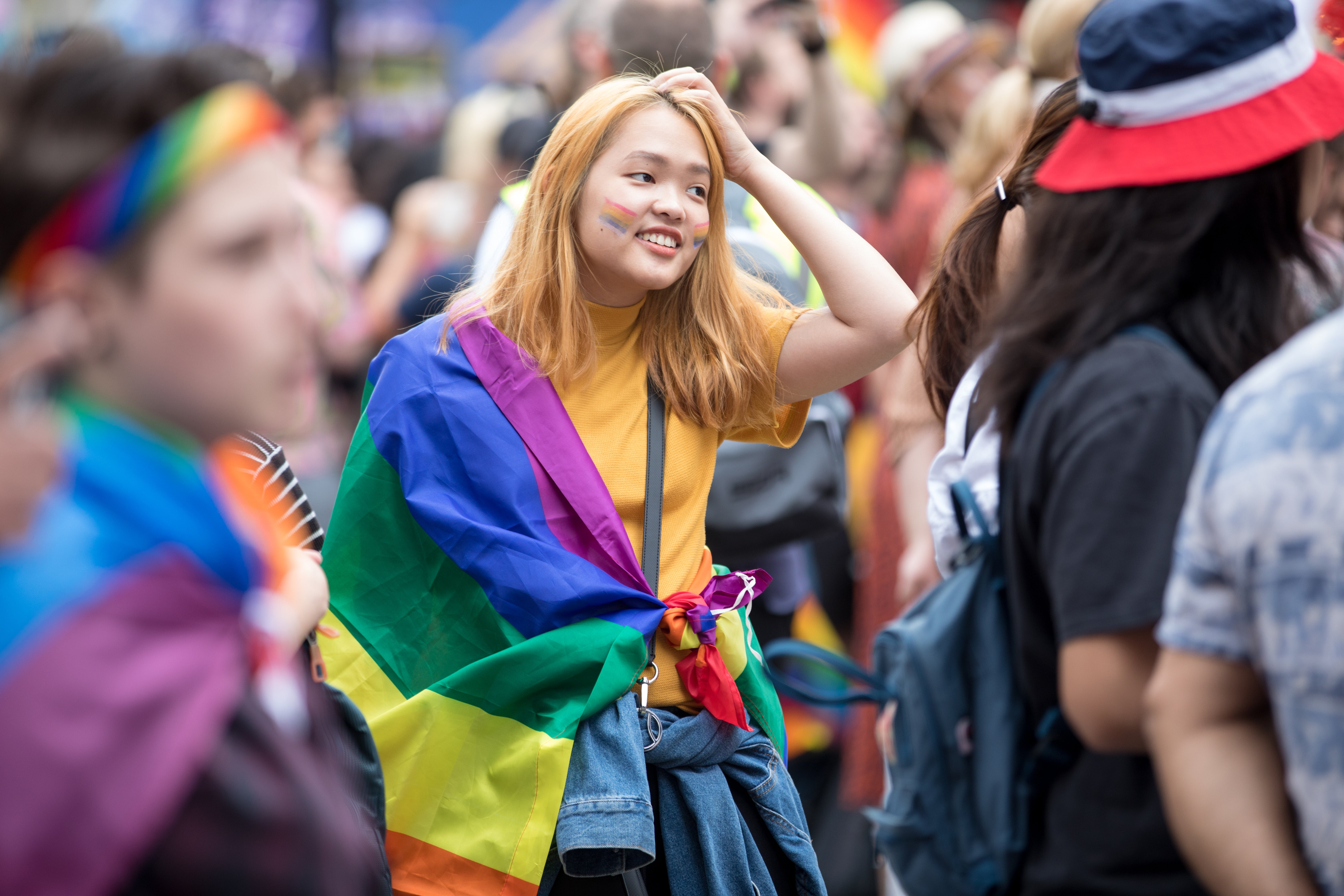This Pride, I’ve got something to tell my younger self
In the early 2000s, in my home town, identifying as anything other than resolutely heterosexual was like being an alien – or a Nazi


Today, we mark 50 years of Pride in London. It feels like a momentous occasion for LGBT+ folks of all stripes, even those who don’t remember the first march in 1972 (we weren’t born yet, ok?). It is a mark of how far we have come in fighting for acceptance and equity, for human rights and for these vital moments of joyful queer celebration.
This anniversary also provides an opportunity to look back – both as a society and as individuals. For me, it brings up some uncomfortable memories of experiencing homophobic bullying as a child, and the impact on my mental health.
I found the transition from a small primary school to a much bigger, tougher and busier state secondary very difficult. Unfortunately, I managed to mark myself out as a target from day one because I liked reading, answered questions in lessons, and wore a skirt (when all the other girls chose trousers – a crime if there ever was one). I was “ugly” too, which didn’t help matters. But the real nail in the coffin was my crush on a female friend.
In the early 2000s, in my home town, identifying as anything other than resolutely heterosexual was like being a Nazi. I think Hitler would probably have received a warmer welcome at my school than an LGBT+ kid. Everything bad or embarrassing or disgusting was “gay”. It was the biggest insult you could sling, and the worst thing you could be.
Instead of my first kiss being a blissful event that I could cherish, it became a source of shame. Everyone knew about it, and I felt that everyone hated me for it. I’d walk into a classroom, age 12, and the air would ring with laughter and homophobic slurs. Kids spat at me, put chewing gum in my hair and passed notes about me that, once caught, they begged me to tell the intervening member of staff that I’d seen and consented to. If I was “in on it”, it “couldn’t be bullying”.
Another teacher, seeking to contain the situation, thought it was appropriate to ask me whether I had, in fact, kissed another girl – as if that would excuse or explain the abuse I was receiving. I was far too ashamed to tell my parents about why I was terrified to go to school.
Every day was fear and humiliation, and it all congealed into a toxic slurry of self-hatred that I carried inside me. I immediately took steps to deny, distance and crush all the “unacceptable” feelings within myself. No one I knew was openly LGBT+, I can’t remember having any positive role models or points of reference – I was deficient, alien, abnormal, wrong. I’d never heard the word “pansexual”. Being proud of who I was? Not an option.
It took me until I was doing my Masters in 2012 – a decade later – to finally, hesitantly, allow myself to be me. This was helped in no small part by a move to Manchester, a city with a rich history of queer acceptance and a vibrant Gay Village, and the encouragement of a particularly lovely friend from my undergraduate degree.
To keep up to speed with all the latest opinions and comment, sign up to our free weekly Voices Dispatches newsletter by clicking here
By consuming queer culture, listening to other LGBT+ folk and learning about their experiences, going to gay clubs, and having the confidence to date men and women, I was able to reclaim this part of myself that I’d tried so hard to kill.
If I could go back in time, and speak to my 11 and 12-year-old self, this is what I’d say: please don’t make yourself smaller, don’t cut away a portion of who you are. There’s nothing wrong with you, and you’re not alone in this.
Kids should never be put in a position where they absorb the poison of bigotry – and that includes homophobic abuse. It is damaging to mental health and wellbeing, and to their sense of identity and personhood. It shatters confidence and can affect people for years into the future.
This year, Pride in London is officially partnering with The Independent to highlight issues facing the LGBT+ community and raise money for the organisation’s Unity Fund. I’m attending, as Voices commissioning editor, standing side by side with brilliant, talented LGBT+ colleagues. I’m not a child anymore – I’m doing my dream job, living my best life and going to Pride 2022 as a queer woman who accepts who she is.
The Independent is the official publishing partner of Pride in London 2022
Bookmark popover
Removed from bookmarks